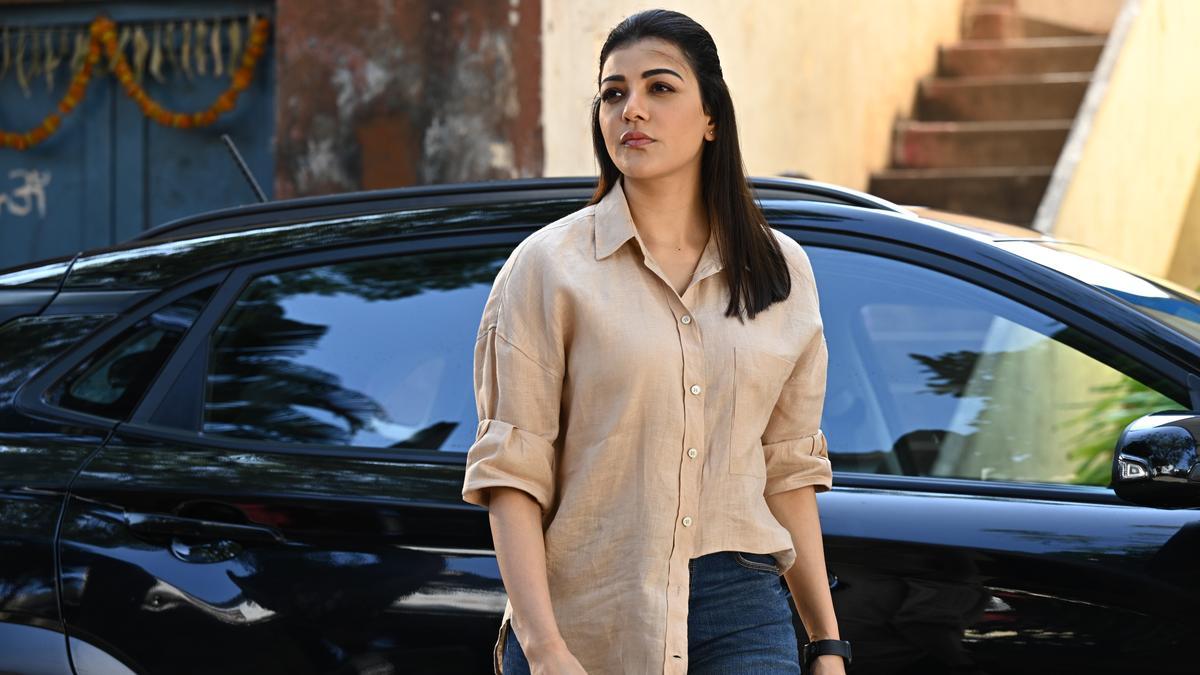
In an industry dominated by male protagonists, finding a Telugu film centered around a strong female lead is a rare gem. The filmmakers of “Satyabhama,” directed by Suman Chikkala, dared to take this leap, presenting audiences with a narrative where a woman plays the central role. The film, headlined by Kajal Aggarwal, attempts to blend intense action sequences with a keen focus on women’s safety, acknowledging the vital roles of SHE Teams and the SHESafe app for women in distress.
Right from the start, “Satyabhama” adopts a ‘mass’ appeal for Kajal Aggarwal. She struts in slow-motion walks paired with action sequences set to the pulsating beats of Sricharan Pakala’s music. Yet, the film steers clear of following the paths laid by notable cop dramas like “Singham” or “Kartavyam.” Instead, it tries to strike a balance, exploring a more somber drama. The plot centers on ACP Satyabhama (Kajal Aggarwal), a dedicated cop who prioritizes her duty above everything else. Supporting her is Amar (Naveen Chandra), her writer-husband, whose unwavering patience makes their dynamic unusually frictionless even when she is late to their wedding.
This drama-free personal life soon hits a roadblock that affects her professional world as well. The film corrals an array of stereotypes and challenges them. One standout scene is when Satyabhama, dressed in a red sari and bangles, manages to extract a confession from a detainee, turning traditional gender roles on their head. These moments are pivotal but brief, and while they are effective in establishing her character as a tough cop, they don’t revolutionize the genre.
The turning point of the story occurs when Haseena, a woman seeking protection from her abusive spouse, walks into the police station. Things spiral from there, and Satyabhama finds herself accountable to Haseena’s brother, Iqbal, and their elderly father. What seemed like a closed case soon reopens, compelling Satyabhama to dig deeper, leading viewers through a maze of subplots. Various characters, portrayed by actors like Ankith Koyya, Sampada, Payal Radhakrishna, Neha Pathan, and Prajwal Yadma, weave into the storyline. These subplots introduce themes of friendship and love, but they often overstay their welcome and dilute the central narrative.
.
Veteran actors such as Prakash Raj, Nagineedu, and Ravi Varma are cast in roles that, unfortunately, do not leave a lasting impact. Even Naveen Chandra’s character feels underdeveloped. The film briefly ventures into political territory, but this subplot, like others involving AI, chat windows, impersonation, and terrorism, quickly fizzles out. Religious stereotyping is touched upon but doesn’t dig deep enough to make a substantive statement. The climax, though somewhat salvaged by Satyabhama’s approach to crisis management, reveals the plot to be nothing more than a straightforward revenge drama. The myriad twists fail to create lasting suspense or emotional engagement for any character, including Satyabhama.
In terms of action, Kajal Aggarwal delivers a commendable performance. Her sequences are convincing, and her character’s demeanor is intentionally stoic, intended to reflect her internal struggles. However, this restrained emotional display sometimes hinders audience connection, making it hard to fully empathize with Satyabhama’s plight.
“Satyabhama” had the potential to be a groundbreaking cop drama. With a screenplay by Sashi Kiran Tikka, known for films like “Goodachari” and “Major,” expectations were high. However, the film falls short of its promise. The pacing, mixed with the overabundance of unresolved subplots and a lack of emotional anchor, leaves viewers desiring a more cohesive and engaging narrative.
This film makes an admirable attempt at placing women at the forefront of Telugu cinema, and Kajal Aggarwal’s role is a step in the right direction for gender representation in the industry. Despite the film’s shortcomings, her performance stands out, showcasing the power and resolve of female protagonists in action roles. For audiences seeking to see a new perspective in the genre, “Satyabhama” offers a fresh but flawed take that is worth experiencing, even if just for Kajal’s stellar performance.
In a film landscape craving more female-led narratives, “Satyabhama” is a brave endeavor that, while it doesn’t entirely succeed, still illuminates the path ahead.










